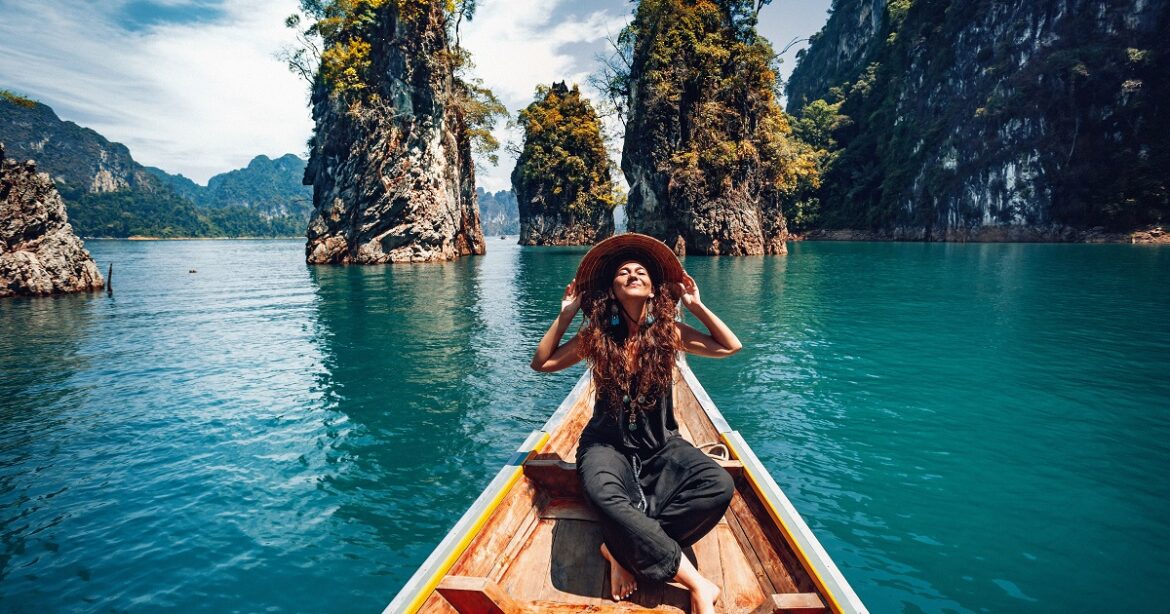Travelling solo as a woman is one of the most liberating experiences you’ll ever have. It’s a chance to explore the world on your terms, meet new people, and grow in ways you never imagined. But with great freedom comes great responsibility—especially when it comes to your safety. That’s where a travel insurance policy comes in.
The right travel insurance policy isn’t just a formality; it’s your safety net. It ensures that if something goes wrong—whether it’s a medical emergency, stolen luggage, or a last-minute trip cancellation—you’re not left stranded. And as a solo female traveler, you need coverage that understands your unique needs.
To help you choose the best protection, here are 10 must-know travel insurance tips—each designed to keep you safe, secure, and stress-free on your adventures. Read on.
1. Prioritise Comprehensive Medical Coverage
Healthcare systems vary wildly around the world. Without the proper coverage, a simple doctor’s visit could cost hundreds—or even thousands—of dollars (not to mention other medical expenses that you’d incur in case of a medical emergency. Worse yet, some countries won’t even admit you without proof of insurance.
When looking for an insurance company for travel insurance, make sure that they cover the following: emergency medical treatment (including hospital stays and other necessary medical care), medical evacuation (in case you need emergency evacuations to a better facility or back to your home country), repatriation of remains (a grim but necessary consideration in worst case scenarios), and coverage for pre-existing conditions (if applicable—some insurers require a medical screening).
You can explore your travel insurance options through providers like Go Insurance Australia and so on.
2. Confirm the Policy Covers Solo Travel without Penalties
Some travel insurance companies charge higher premiums or exclude certain benefits for solo travellers, assuming they’re at greater risk. This is unfair—yet totally avoidable.
When shopping around for travel insurance, the following are key questions to ask:
- Does the policy explicitly cover solo travellers?;
- Are there any extra fees for travelling alone?;
- If you cancel, will you still be reimbursed even if you’re the only one on the trip? and so on.
Why it matter? You don’t want to find out too late that your insurer considers travelling alone a ‘risk factor’ that voids your coverage.
3. Choose a Plan with Round-the-Clock Emergency Assistance
When you’re alone in a foreign country, even small emergencies can feel overwhelming. A reliable insurer should offer round-the-clock support so you’re never truly on your own.
The following are top must-have services for travel insurance: a 24-hour emergency hotline (preferably with multilingual staff), comprehensive assistance with medical referrals, legal issues, or lost documents, help rebooking flights if you’re stranded due to illness or injury, and so on.
Consider the following scenario. Imagine twisting your ankle on a remote hike in Peru. A good insurer wouldn’t just cover your hospital visit—they’d help arrange transport back to your hotel.
4. Double-Check Adventure Activity Coverage
Love hiking, scuba diving, or skiing? Standard travel insurance often excludes ‘high-risk’ activities unless you pay extra.
Below should be verified with the insurer to determine the extent of your travel insurance coverage:
- Which activities are covered? (Even seemingly mild ones like zip-lining or surfing may require an add-on.)
- Are there altitude limits? (Some policies won’t cover trekking above a certain elevation.)
- Does it cover equipment rental damage? (If you wipe out on a rented snowboard, will you be reimbursed?)
Consider this pro tip: if you’re planning anything adventurous, get a specialised policy that includes extreme sports.
5. Ensure Theft and Loss Protection
Solo travellers—especially women—are often targeted by pickpockets and scammers.
With that, a good policy should cover critical protections covering stolen luggage or personal items (with clear per-item limits), pickpocketing or robbery (some insurers require a police report), and lost or damaged electronics such as phones, laptops, cameras, and others like them.
Smart move? Always keep receipts for expensive items—you’ll need them for claims when the need arises.
6. Consider ‘Cancel for Any Reason’ (CFAR) Coverage
Standard trip cancellation insurance only reimburses you for specific reasons (illness, natural disasters, and so on). But what if you just don’t feel safe going anymore?
That’s where CFAR coverage comes in handy. Why is it worth having? Having CFAR in your travel insurance provider’s package lets you reimburse a portion of non-refundable costs, no questions asked, cancel trips at the last minute due to safety concerns (political unrest, harassment risks), and have total flexibility, because solo travel plans change.
The drawback? Travel insurance with CFAR cover is generally more expensive, but the peace of mind is priceless.
7. Do not Overlook Personal Liability Coverage
If you accidentally injure someone or damage property, you could face massive legal fees. Personal liability coverage protects you from any of the following during your trip: medical bills if you hurt someone accidentally while on your trip, legal defence costs if you’re sued while travelling, property damage in hotel and accommodations, and so on.
An important step to make is to check the coverage limit—some policies cap it too low for serious incidents.
8. Look for Mental Health Support
Solo travel isn’t always picture-perfect. Loneliness, anxiety, or culture shock can hit hard, and some insurers now include mental health benefits.
The following are typically offered by travel insurance providers that promise to cover mental health-related concerns: emergency counselling sessions, crisis hotline access, coverage for therapy if you’re struggling abroad, and so on.
Do take note that any pre-existing conditions may require additional disclosure.
9. Research the Insurer’s Reputation
A cheap policy is useless if the company denies claims or takes months to pay. Before buying, remember to do your homework. That includes reading reviews from other solo female travellers, checking claim approval rates, avoiding companies with frequent complaints about delays, and so on.
10. Keep Multiple Copies of Your Policy Handy (And Secured)
If your phone dies or your bag is stolen, you’ll still need proof of insurance to file a claim. Consider the following backup strategies when it comes to still having access to proof of insurance coverage: email a copy to yourself, upload it to cloud storage, carry a printed version in a separate bag, and so on.
Final Thoughts: Travel Confidently, Stay Protected
As a solo female traveller, you’re already brave. But bravery shouldn’t mean taking unnecessary risks. The right travel insurance lets you explore freely while knowing you’re protected against the unexpected.
Before your next trip, compare policies, read the fine print, and select a plan that fits your needs. Because when you’re prepared, the world feels a little smaller—and a lot safer.
Now go out there and make unforgettable memories. Just don’t forget your insurance!


